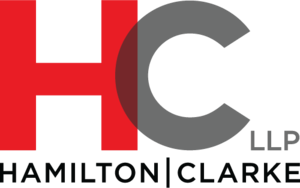

New York Title IX Defense Lawyer
Any educational institution that receives federal funding is subject to Title IX of the Education Amendments of 1972, a federal civil rights law prohibiting sex discrimination in education programs and activities. While a popular belief is only college athletic programs are subject to Title IX, that is not true. Title IX laws apply to every aspect of education, including:
- Courses
- Counseling services
- Financial aid
- Student health and insurance benefits
- Housing
- Physical education
- Employment
Public and private colleges, occupational, trade, high, middle, and elementary schools that get federal financial assistance must comply with Title IX. Anyone and any group who believes a Title IX violation occurred at these schools or programs may file a complaint with their local Office for Civil Rights (OCR).
Unfortunately, the freedom for anyone to file a complaint carries a high risk for the accused. Whether or not the allegations are true, alleged Title IX offenders must undergo investigations, disciplinary hearings, and, potentially, the criminal justice system. Those processes alone can tarnish an accused person’s or institution’s reputation and livelihood, which is why Title IX proceedings must be investigated and adjudicated relatively and in accordance with your due process rights.
Facing a Title IX investigation or charges can be overwhelming and have serious consequences for your academic and professional future. At Hamilton Clarke, LLP, our experienced Title IX lawyers are dedicated to protecting the rights of students, faculty, and staff accused of Title IX violations in New York.
What is Considered a Title IX Violation?
Title IX complaints span a vast range of sex-based discrimination beyond sexual harassment and assault, although those allegations are among the most common. Generally, violations include:
Sexual harassment and/or assault:
- Dating violence
- Domestic violence
- Attempted or completed rape
- Fondling or unwanted sexual touching
- Forcing a victim to perform sexual acts
- Stalking
- Unwelcome conduct that is so severe, pervasive, and offensive that it denies a person equal access to an education program or activity
- Utilizing an educational benefit or service in exchange for another person’s participation in unwelcome sexual conduct (“quid pro quo” harassment)
What Should You Do if You Receive a Title IX Complaint?
If you receive a Title IX complaint, responding appropriately from the start is critical to protecting your rights and future. First, refrain from discussing the allegations with anyone other than a Title IX attorney. Casual conversations with peers, school officials, or anyone other than your attorney could lead to misunderstandings, admissions, or other information that might be used against you in the investigation.
Upon receiving the complaint, take immediate steps to gather and organize any relevant documentation, including messages, emails, or other records that might relate to the allegations. However, avoid sharing these materials directly with school officials until you consult with a Title IX attorney, as certain evidence may require careful presentation to protect your case.
Understanding your school’s Title IX procedures is also essential. Every educational institution has unique policies that outline timelines, the process for presenting evidence, and appeal rights. An attorney can help interpret these guidelines and ensure that you understand each phase of the process, including the possible implications for your academic standing and future opportunities.
Finally, work closely with your attorney to formulate a clear response strategy. This includes preparing for interviews, understanding procedural rights, and exploring available defenses. By taking these steps and seeking legal guidance early, you can better navigate the complexities of Title IX investigations and advocate for a fair outcome.
Title IX Retaliation
Retaliation includes acts such as giving failing grades, barring students from participating in school activities, and threatening to suspend or expel anyone using their Title IX rights. Other examples of unlawful retaliation include:
- Getting little to no playtime (for student-athletes)
- Being held to higher, unfair standards than others
- Getting demoted to a lower employment, academic or athletic position
Title IX Hostile Environment
Hostile environment: Bullying and harassment create an unsafe environment for both students and school administrators to function. A hostile environment can occur when discriminatory or sexual situations foster fear and intimidation. As a result, a person may be denied or limited in their ability to participate in or benefit from a program, activity, or job. Examples of actions that could foster a hostile environment include:
- Slurs
- Taunts/name-calling
- Stereotypes
- Gender-motivated physical threats and/or attacks
- Gender-motivated physical attacks
What are Common Issues in Title IX Investigations?
Our New York Title IX defense lawyers use a risk assessment approach to identify potential issues that could negatively affect your case and work to minimize them before they become actual issues. From our experience, we’ve seen where Title IX proceedings may be flawed so much that they hinder both parties’ right to a fair hearing. Flaws we have seen include:
Biased investigators: Although one might think a law enforcement officer investigates Title IX cases, the reality is that a university will hire an investigator to handle this step. And although some investigators are better than others, it can still be difficult for a school-hired investigator to conduct an unbiased investigation. For instance, what if they discover that the university ― their employer ― was at fault? That means the funding for their employer is on the line, which could motivate the investigator to turn a blind eye to critical details in a case.
Gathering evidence: Many universities and programs conduct Title IX investigations rapidly, leaving little time to hear all sides of the story. This can lead to exculpatory information (i.e., proof of innocence) being left out of the investigative process, especially when alleged victims and witnesses don’t feel comfortable sharing the full story with investigators. It doesn’t help that investigators get to choose what information is essential and what is not, especially when they may be working in the best interests of their employer.
Interpreting evidence: Since Title IX investigators are responsible for determining whether evidence is directly related to an allegation of sexual misconduct, they must act accordingly. This means investigators must thoroughly evaluate the evidence from an unbiased standpoint, ignoring their “gut feelings” and implicit biases. However, they are humans, and humans aren’t perfect, which could create unintended consequences for the accused.
With this in mind, our New York Title IX defense attorneys will work to leave no stone unturned in your Title IX case and ensure all parties are doing their part to maintain a fair and legal proceeding.
Contact us online or call (646) 603-0522 to learn more about how we can help you.

